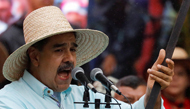Yes, I worry about potential government abuse of privacy from a program designed to prevent another 9/11 — abuse that, so far, does not appear to have happened. But I worry even more about another 9/11. That is, I worry about something that’s already happened once — that was staggeringly costly — and that terrorists aspire to repeat.
I worry about that even more, not because I don’t care about civil liberties, but because what I cherish most about America is our open society, and I believe that if there is one more 9/11 — or worse, an attack involving nuclear material — it could lead to the end of the open society as we know it. If there were another 9/11, I fear that 99 percent of Americans would tell their members of Congress: “Do whatever you need to do to, privacy be damned, just make sure this does not happen again.” That is what I fear most.
That is why I’ll reluctantly, very reluctantly, trade off the government using data mining to look for suspicious patterns in phone numbers called and e-mail addresses — and then have to go to a judge to get a warrant to actually look at the content under guidelines set by Congress — to prevent a day where, out of fear, we give government a license to look at anyone, any e-mail, any phone call, anywhere, anytime.
So I don’t believe that Edward Snowden, the leaker of all this secret material, is some heroic whistle-blower. No, I believe Snowden is someone who needed a whistle-blower. He needed someone to challenge him with the argument that we don’t live in a world any longer where our government can protect its citizens from real, not imagined, threats without using big data — where we still have an edge — under constant judicial review. It’s not ideal. But if one more 9/11-scale attack gets through, the cost to civil liberties will be so much greater.
A hat tip to Andrew Sullivan for linking on his blog to an essay by David Simon, the creator of HBO’s “The Wire.” For me, it cuts right to the core of the issue.
“You would think that the government was listening in to the secrets of 200 million Americans from the reaction and the hyperbole being tossed about,” wrote Simon. “And you would think that rather than a legal court order, which is an inevitable consequence of legislation that we drafted and passed, something illegal had been discovered to the government’s shame. Nope. ... The only thing new here, from a legal standpoint, is the scale on which the F.B.I. and N.S.A. are apparently attempting to cull anti-terrorism leads from that data. ... I know it’s big and scary that the government wants a database of all phone calls. And it’s scary that they’re paying attention to the Internet. And it’s scary that your cellphones have GPS installed. ... The question is not should the resulting data exist. It does. ... The question is more fundamental: Is government accessing the data for the legitimate public safety needs of the society, or are they accessing it in ways that abuse individual liberties and violate personal privacy — and in a manner that is unsupervised. And to that, The Guardian and those who are wailing jeremiads about this pretend-discovery of U.S. big data collection are noticeably silent. We don’t know of any actual abuse.”We do need to be constantly on guard for abuses. But the fact is, added Simon, that for at least the last two presidencies “this kind of data collection has been a baseline logic of an American anti-terrorism effort that is effectively asked to find the needles before they are planted into haystacks, to prevent even such modest, grass-rooted conspiracies as the Boston Marathon bombing before they occur.”To be sure, secret programs, like the virtually unregulated drone attacks, can lead to real excesses that have to be checked. But here is what is also real, Simon concluded:“Those planes really did hit those buildings. And that bomb did indeed blow up at the finish line of the Boston Marathon. And we really are in a continuing, low-intensity, high-risk conflict with a diffuse, committed and ideologically motivated enemy. And, for a moment, just imagine how much bloviating would be wafting across our political spectrum if, in the wake of an incident of domestic terrorism, an American president and his administration had failed to take full advantage of the existing telephonic data to do what is possible to find those needles in the haystacks.”And, I’d add, not just bloviating. Imagine how many real restrictions to our beautiful open society we would tolerate if there were another attack on the scale of 9/11. Pardon me if I blow that whistle.
스마터리빙
more [ 건강]
[ 건강]이제 혈관 건강도 챙기자!
[현대해운]우리 눈에 보이지 않기 때문에 혈관 건강을 챙기는 것은 결코 쉽지 않은데요. 여러분은 혈관 건강을 유지하기 위해 어떤 노력을 하시나요?
 [ 건강]
[ 건강]내 몸이 건강해지는 과일궁합
 [ 라이프]
[ 라이프]벌레야 물럿거라! 천연 해충제 만들기
 [ 건강]
[ 건강]혈압 낮추는데 좋은 식품
[현대해운]혈관 건강은 주로 노화가 진행되면서 지켜야 할 문제라고 인식되어 왔습니다. 최근 생활 패턴과 식생활의 변화로 혈관의 노화 진행이 빨라지고
사람·사람들
more많이 본 기사
- 굽히지 않는 젤렌스키…트럼프에 역제안 카드로 레드라인 저지
- TV 나와 암투병 근황 공개한 찰스 英국왕… “조기검진 중요해요”
- 송지효 “’런닝맨’ 출연 중 8년 ♥장기 연애했다” 폭탄 고백..멤버 모두 ‘충격’
- 변요한♥티파니, 결혼 전제 열애 인정
- 국힘·개혁신당 “통일교 특검 수용하라”…與 “정치공세·물타기”
- 제미나이 추격 오픈AI 새 모델 GPT-5.2 조기 공개
- 한국도 참여한 美주도 AI 동맹 “비시장적 관행에 공동 대응”
- 신혼부부 ‘역대 최저’ 24%는 3억 이상 대출
- ‘고가 논란’ 북중미 월드컵 티켓, 판매 첫날 500만건 신청
- “한국, 재래식 방위주도” 한미 핵협의그룹 첫 명시
- AI공급망 동맹 ‘팍스 실리카’ 8개국 참여
- 선교사 아들 가나대사로 금의환향… “한국·가나는 두 어머니”
- 초강경 추방 드라이브… 한인사회 불안… 5
- 미일 ‘팍스 실리카’ 협력 문서 서명
- 통일교 특검 대신 “내란 2차 특검”… 민주당 ‘철벽 방어’
- 종묘 일대 세계유산지구로 세운4구역 개발 영향 줄까
- 한화, 호주 방산업체 최대주주 된다
- “보안사고 반복 땐 과징금 폭탄”… 해킹과 전면전 선포한 과기부
- 주한미군사령관 “전작권 전환, 시기보다 조건 봐야”
- “’삐빅’ 비트코인으로 결제할게요”…맥도날드·편의점서도 쓴다는 ‘이곳’, 어디?
- “귀금속 역사상 가장 극적인 재평가”…올해는 銀이 金 앞섰다 [공준호의 탈월급 생존법]
- ‘양육비 미지급’ 김동성 “내가 月700만원? 통장 압류된 신용불량자”
- 노화의 신호, 흰머리는 왜 생기나… … 2
- 19개주, 트럼프 전문직 비자 ‘10만불 수수료’에 소송
- 트럼프, 중남미 마약카르텔 공습 확대의지… “지상서도 시작한다”
- FDA, 우울증 치료 ‘뇌 자극’ 가정용 헤드셋 기기 첫 승인
- ‘나혼산’ 박나래, 흔적도 없이 하차… 1
- 우크라 “러 점령 쿠피안스크 일부 탈환”…젤렌스키 방문
- 에어프레미아, 워싱턴 DC 신규 취항
- 뉴욕증시, 브로드컴 비관론에 AI 테마 ‘와르르’…나스닥 1.7%↓ 마감
- 젤렌스키 측근 협상가가 FBI국장을 왜?…비밀회동 목적 의문
- “헉, AI가 만든 사진일 줄”…발등에 ‘귀’ 달고 다닌 30대 中 여성, 도대체 왜?
- 한인 업소들, 이번 주말 ‘할인 대전’ 돌입
- [인터뷰] “한인 커뮤니티 지원하고 도움이 되는 협회될 것”
- “멍청한 이민국” 트럼프 비판에… 미, 비자 개선 속도전
- 김지민 “유부남과 불륜, 날 알리바이로 이용”..친구와 손절한 사연 [이호선의 사이다]
- “엔비디아, 中수요 반영 H200 증산”…일각선 “中, 수입거부할듯”
- “머스크의 X, 3분기 매출 7억 달러대…순손실 5억 달러대”
- 쿠팡 美소송 신청자, 나흘 만에 2000명 이상 증가… “연내 소장 제출”
- “산타 분장하고 아이들과 만났는데”…교사 출신 60대 남성, 성범죄 혐의에 美 ‘발칵’
- 챗GPT서 ‘포토샵’ 무료 오픈AI·어도비 합의 발표
- <부음> 이명무 전 SF 체육회장 부인상
- “20분이면 샤워·건조까지 풀코스로”…상상 속 ‘인간 세탁기’ 드디어 첫 가동, 가격 보니
- 민주, 트럼프와 여성들 함께 찍힌 ‘엡스타인 사진’ 공개…엡스타인 저택서 확보한 19장에 빌 클린턴·빌 게이츠 등 유명 인사
- 김하성-ATL, 이대로 헤어지나→윈터미팅서만 무려 1005억 지출해버렸다
- [송년행사 화보] “친구야 반갑다… 선배님들 모두 건강하세요”
- 월마트도 나스닥 이전… 기술기업 변신
- 워싱턴주 홍수로 수만명 대피…주지사 “유례없는 상황 직면”
- 초강경 추방 드라이브… 한인사회 불안감 확산
- ‘정국 열애설’에 뿔난 아미 ‘워워’..BTS 완전체, 전역→웃으며 연습실 회동 첫 인증샷
1/5지식톡

-
 테슬라 자동차 시트커버 장착
0
테슬라 자동차 시트커버 장착
0테슬라 시트커버, 사놓고 아직 못 씌우셨죠?장착이 생각보다 쉽지 않습니다.20년 경력 전문가에게 맡기세요 — 깔끔하고 딱 맞게 장착해드립니다!장착비용:앞좌석: $40뒷좌석: $60앞·뒷좌석 …
-
 식당용 부탄가스
0
식당용 부탄가스
0식당용 부탄가스 홀세일 합니다 로스앤젤레스 다운타운 픽업 가능 안녕 하세요?강아지 & 고양이 모든 애완동물 / 반려동물 식품 & 모든 애완동물/반려동물 관련 제품들 전문적으로 홀세일/취급하는 회사 입니다 100% …
-
 ACSL 국제 컴퓨터 과학 대회, …
0
ACSL 국제 컴퓨터 과학 대회, …
0웹사이트 : www.eduspot.co.kr 카카오톡 상담하기 : https://pf.kakao.com/_BEQWxb블로그 : https://blog.naver.com/eduspotmain안녕하세요, 에듀스팟입니다…
-
 바디프렌드 안마의자 창고 리퍼브 세…
0
바디프렌드 안마의자 창고 리퍼브 세…
0거의 새제품급 리퍼브 안마의자 대방출 한다고 합니다!8월 23일(토)…24일(일) 단 이틀!특가 판매가Famille: $500 ~ $1,000Falcon: $1,500 ~ $2,500픽업 & 배송직접 픽업 가능LA…
-
 바디프렌드 안마의자 창고 리퍼브 세…
0
바디프렌드 안마의자 창고 리퍼브 세…
0거의 새제품급 리퍼브 안마의자 대방출 한다고 합니다!8월 23일(토)…24일(일) 단 이틀!특가 판매가Famille: $500 ~ $1,000Falcon: $1,500 ~ $2,500픽업 & 배송직접 픽업 가능LA…
케이타운 1번가
오피니언

22기 LA평통 출범에 거는 기대

연말 시즌 사기·범죄 경계해야
 메건 매카들 워싱턴포스트 칼럼니스트
메건 매카들 워싱턴포스트 칼럼니스트 [메건 매카들 칼럼] 장편영화의 마지막 챕터인가
 김미선 서북미문인협회 회장시인
김미선 서북미문인협회 회장시인 [한국춘추] 하늘을 계산한 사람들, 칠정산
 이희숙 시인·수필가
이희숙 시인·수필가 [금요단상] 그을린 자리에서 다시
 심상용 / 서울대 미술관장
심상용 / 서울대 미술관장 [미술 다시보기] 지옥에 대하여
 서정명 / 서울경제 기자
서정명 / 서울경제 기자[만화경] 주한미군과 ‘도련선 리스크’
 한 영 재미수필가협회 회장
한 영 재미수필가협회 회장 [한영의 독서칼럼] 불안한 사람들
 정영현 서울경제 테크성장부장
정영현 서울경제 테크성장부장 [여명] 콘크리트가 데이터가 됐을 뿐, 달라진 게 없다
1/3지사별 뉴스

“마약밀매·인신매매 등 국제범죄 척결” ‘국토안보 태스크포스’ 뉴욕지부 출범
연방 국토안보부가 10일 ‘국토안보 태스크포스’(HSTF) 뉴욕지부를 출범시켰다.HSTF는 마약 카르텔, 인신매매, 자금세탁, 갱단 등 국제범…
‘오바마케어 보조금’ 올해 말 종료 가능성 ↑ 커져

한국 교사 10명, 페어팩스 초등교 배치
‘글로벌 앰버서더 티처스 프로그램’(Global Ambassador Teachers Program)은 국제 교사 교환 프로그램 가운데 하나로 …
김찬수씨, 포토맥 포럼에 2천달러 기부

초강경 추방 드라이브… 한인사회 불안감 확산
도널드 트럼프 행정부가 출범 직후 불법체류자 100만 명 추방 목표 달성을 위해 초강경 조치를 본격화하면서 미주 한인사회에 불안감이 심각하게 …
<부음> 이명무 전 SF 체육회장 부인상

오늘 하루 이 창 열지 않음 닫기 





















































.png)


댓글 안에 당신의 성숙함도 담아 주세요.
'오늘의 한마디'는 기사에 대하여 자신의 생각을 말하고 남의 생각을 들으며 서로 다양한 의견을 나누는 공간입니다. 그러나 간혹 불건전한 내용을 올리시는 분들이 계셔서 건전한 인터넷문화 정착을 위해 아래와 같은 운영원칙을 적용합니다.
자체 모니터링을 통해 아래에 해당하는 내용이 포함된 댓글이 발견되면 예고없이 삭제 조치를 하겠습니다.
불건전한 댓글을 올리거나, 이름에 비속어 및 상대방의 불쾌감을 주는 단어를 사용, 유명인 또는 특정 일반인을 사칭하는 경우 이용에 대한 차단 제재를 받을 수 있습니다. 차단될 경우, 일주일간 댓글을 달수 없게 됩니다.
명예훼손, 개인정보 유출, 욕설 등 법률에 위반되는 댓글은 관계 법령에 의거 민형사상 처벌을 받을 수 있으니 이용에 주의를 부탁드립니다.
Close
x